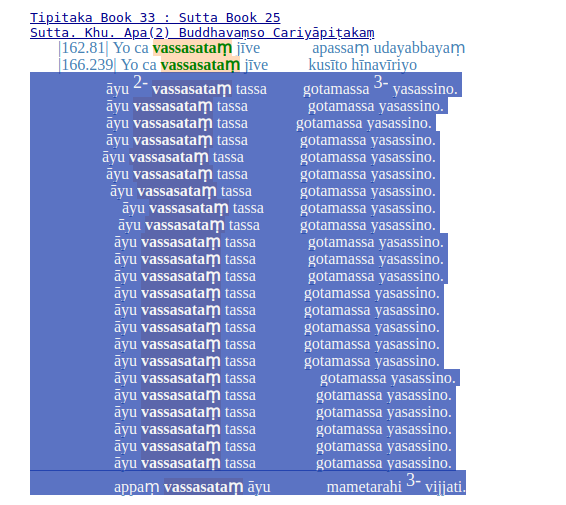in the Digha Nikaya 16 The Buddhas Final Nibbhana , the Buddha blames Ananda for not requesting that the Buddha live for aeons, three times. he had only asked him twice. Why does the Buddha blame him ? And the Blessed One answered, saying: "Enough, Ananda. Do not entreat the Tathagata, for the time is past, Ananda, for such an entreaty."
50-51. But for a second and a third time, the Venerable Ananda said to the Blessed One: "May the Blessed One remain, O Lord! May the Happy One remain, O Lord, throughout the world-period, for the welfare and happiness of the multitude, out of compassion for the world, for the benefit, well being, and happiness of gods and men!"
- Then the Blessed One said: "Do you have faith, Ananda, in the Enlightenment of the Tathagata?" And the Venerable Ananda replied: "Yes, O Lord, I do."
"Then how, Ananda, can you persist against the Tathagata even up to the third time?"
Then the Venerable Ananda said: "This, O Lord, I have heard and learned from the Blessed One himself when the Blessed One said to me: 'Whosoever, Ananda, has developed, practiced, employed, strengthened, maintained, scrutinized, and brought to perfection the four constituents of psychic power could, if he so desired, remain throughout a world-period or until the end of it. The Tathagata, Ananda, has done so. Therefore the Tathagata could, if he so desired, remain throughout a world-period or until the end of it.'"
"And did you believe it, Ananda?"
"Yes, O Lord, I did."
"Then, Ananda, the fault is yours. Herein have you failed, inasmuch as you were unable to grasp the plain suggestion, the significant prompting given by the Tathagata, and you did not then entreat the Tathagata to remain. For if you had done so, Ananda, twice the Tathagata might have declined, but the third time he would have consented. Therefore, Ananda, the fault is yours; herein have you failed.

